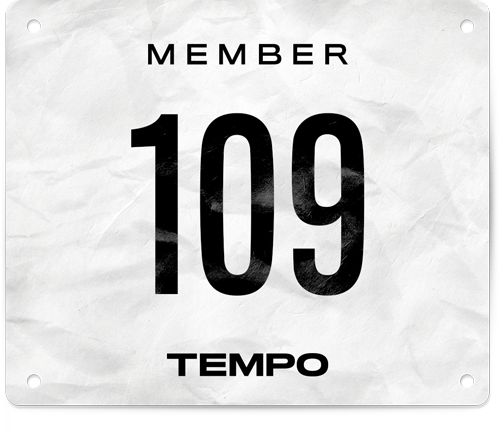Lifestyle
Crossroads and Criticism
Navigating the Way from Feedback to Growth
Dave McNeill is more than a TEMPO columnist: he's a three-time Olympian, a physiotherapist and a run coach. Catch him writing for us every couple of months.
Improvement and growth are mentalities hard-wired into many runners – competitive and non-competitive alike. It’s hard to know whether the run breeds that, or attracts it. Either way, it’s this mindset that makes the run community a resilient one.
As runners, we face many crossroads on the growth path where difficult questions arise. It may be after a poorly executed race. It might be on the doorsteps of an injury. It may be when performance is stagnating. And it may be when the run loses its capacity to bring us joy.
At every level, running asks us to test our physical, mental and emotional limits. Time and again, our success or growth at those crossroads is a product of how we respond to failure.
Sometimes, we recognise a crossroad. Other times, we are blind to it – so focused on moving, we don’t consider the direction we’re moving in.
Invariably, though, at those crossroads we find people who have our backs. Our coaches, our mentors, our teammates, our run-buddies, our fans, our loved ones. Sometimes, we reach out for help and feedback. And that can be both comforting and confronting. But when we’re blind to the direction we’re moving, and the damage we’re leaving, feedback and critique – even given with the best of intentions – can hurt.
In most other areas of life, success, failure and growth are dependent on external variables. Social and political climate, workplace culture, timing – the list is endless. In most other areas of life, feedback and failure can be easy to distance ourselves from because it’s possible to play the blame game.
But running is different. At the end of the day, it’s just you and the run. There’s a supporting cast, of course, but when you’re actually out there putting one foot in front of the other, the buck stops with you.
Feedback and criticism can be uncomfortable because there is the inescapable element of an attack on our ego. “You had the power to prevent that injury from happening.” “Your tactics and pacing strategy cost you the race.” When the ego is under attack, its default reaction is defence.
And the fundamental defence is to stop listening. Sometimes, we focus on defending ourselves to the messenger. Sometimes we mourn the fact that someone has seen our imperfections. We become anxious and depressed. And sometimes we go straight for denial. In most cases, the mind busies itself with everything but the message. Because the ego – our mind’s main character – is not attuned to letting criticism through the front door.
So many opportunities for growth are delayed or missed because we find feedback too uncomfortable to address. After all, running can be uncomfortable enough without being told we’re doing it wrong.
“Sometimes, we recognise a crossroad. Other times, we are blind to it – so focused on moving, we don’t consider the direction we’re moving in.”
Dave McNeill
But in taking a step back, taking a deep breath and recognising these patterns, there is an opportunity to fast-track our growth. To step into criticism and take it by the reins. Thanks to many good teachers in my own life, I’ve found four strategies to make feedback easier to confront.
Pause and listen
A good place to start with feedback is keeping your ears open. The mind will want to defend itself, but let the feedback sink in. Sit with it. Recognise your mind attempting to focus on the messenger, or defending your racing and training decisions. Avoid the urge to engage in a debate, either verbally or internally. Let the ego come and go, as in a well-executed meditation. It will take practice, but stick with it.
Be open and thankful
Once you get better at listening, and at tuning out the ego, start opening your heart. Acknowledge and thank the messenger. Do it genuinely. Avoid any thinly veiled contempt in your sentiment. If there is contempt, you still have some work to do on listening. But if you can, dig further into the discomfort. Continue to keep that ego at bay, and honour the person in front of you giving feedback. Thank them. Ask questions. Stay humble. Be present in the moment.
Put feedback in context
But pay close attention to who the messenger is. There is a difference between well-meaning feedback and criticism that lacks context. It is the difference between a messenger who wants to see us grow and a messenger who wants to see us fail. We need not waste time entertaining the feedback of someone who wants to see us fail. But from the messenger who wants to see us grow, not only do we stand to find success but we can start to forge trust and gratitude – invaluable qualities to hold onto.
Look inwards
And finally, remember that the messenger isn’t always in front of you. Sometimes, we are our own messenger. Our own worst critic. And our own best critic. Slow down occasionally. Pay attention to the crossroads along the way. Step out of your mind and stay open. Listen humbly to feedback and honestly to your own heart.


